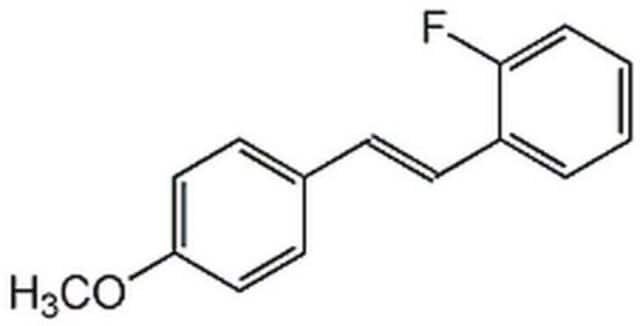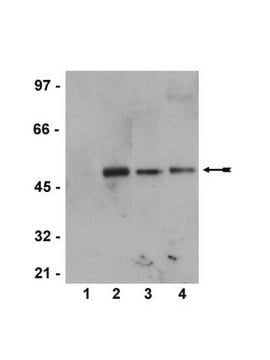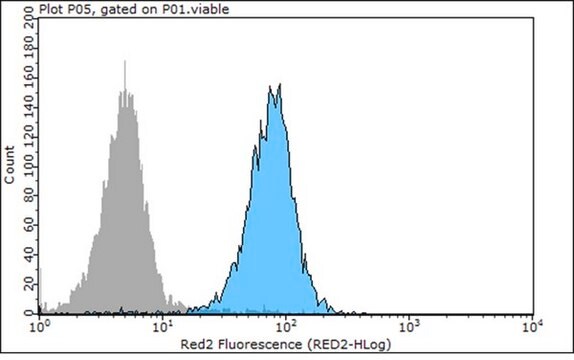05-778
Anti-Rho (-A Antibody, -B, -C), clone 55
clone 55, Upstate®, from mouse
Synonym(s):
Aplysia ras-related homolog 12, oncogene RHO H12, ras homolog gene family, member A, small GTP binding protein RhoA
About This Item
Recommended Products
biological source
mouse
Quality Level
antibody form
purified immunoglobulin
antibody product type
primary antibodies
clone
55, monoclonal
species reactivity
human, mouse, rat
manufacturer/tradename
Upstate®
technique(s)
immunocytochemistry: suitable
western blot: suitable
isotype
IgG1
NCBI accession no.
UniProt accession no.
shipped in
wet ice
target post-translational modification
unmodified
Gene Information
human ... RHOA(387)
General description
Specificity
Immunogen
Application
This antibody has been reported by an independent laboratory to detect Rho in cells via immunofluorescence.
Signaling
Cytoskeletal Signaling
Quality
Western Blot Analysis:
0.5-2 µg/mL of this lot detected Rho in RIPA lysates from HL-60 cells. A previous lot detected Rho in RIPA lysates from Jurkat cells.
Target description
Physical form
Storage and Stability
Handling Recommendations:
Upon receipt, and prior to removing the cap, centrifuge the vial and gently mix the solution. Aliquot into microcentrifuge tubes and store at -20ºC. Avoid repeated freeze/thaw cycles, which may damage IgG and affect product performance. Note: Variability in freezer temperatures below -20ºC may cause glycerol-containing solutions to become frozen during storage.
Analysis Note
HL-60 cell lysate.
Other Notes
Legal Information
Disclaimer
Not finding the right product?
Try our Product Selector Tool.
Storage Class Code
10 - Combustible liquids
WGK
WGK 1
Certificates of Analysis (COA)
Search for Certificates of Analysis (COA) by entering the products Lot/Batch Number. Lot and Batch Numbers can be found on a product’s label following the words ‘Lot’ or ‘Batch’.
Already Own This Product?
Find documentation for the products that you have recently purchased in the Document Library.
Our team of scientists has experience in all areas of research including Life Science, Material Science, Chemical Synthesis, Chromatography, Analytical and many others.
Contact Technical Service








